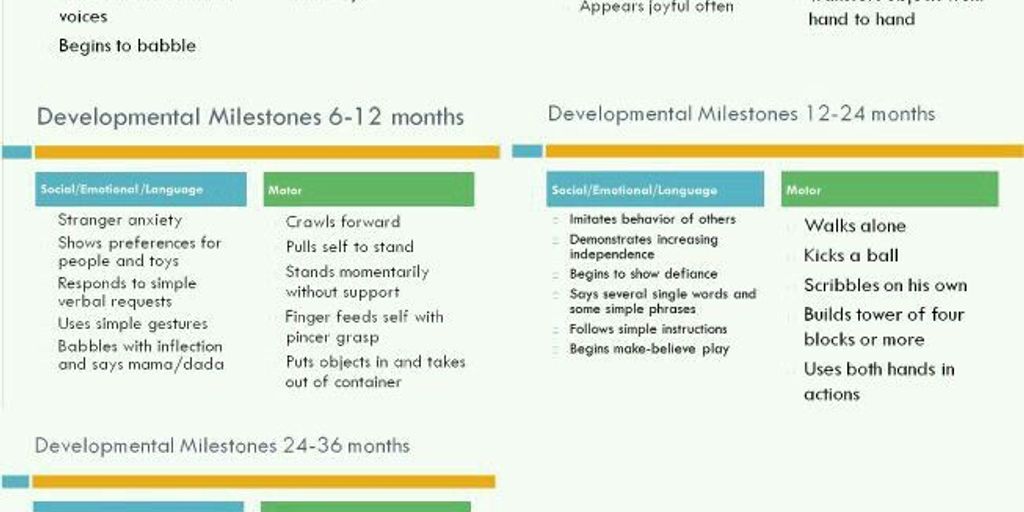
As a parent, it is important to understand and provide support for the different developmental milestones your child will experience during their life. By familiarizing yourself with age-specific stages of development, utilizing tools and resources to track progress, as well as engaging in activities that encourage growth – you can ensure your youngster reaches all potentials. Also, don’t forget about early intervention if any perceived additional needs are noticed, this kind of timely attention plays an essential role in your child’s overall development.
Key Takeaways
- Understanding and monitoring developmental milestones is essential to ensure optimal growth in children.
- Milestones vary by age group and sometimes by child, from physical developments for infants to emotional growth for adolescents. Every child is unique. These milestones are for guidance purposes only.
- Parents and educators can support their child’s development through strategies such as fostering language skills, nurturing cognitive abilities, and recognizing areas for further attention with a trained professional.
- Utilizing tools and resources like milestone checklists or professional guidance can aid in tracking a child’s progress and addressing any concerns early on.
- Creating a supportive environment and collaborating with professionals are crucial steps in monitoring and celebrating developmental milestones.
Understanding Developmental Milestones
The Importance of Developmental Milestones
Understanding and monitoring developmental milestones is essential to ensure optimal growth in children. Developmental milestones are indicators that provide an insight into a child’s growth, which include motor skills, language abilities, and cognitive development. Monitoring these milestones enables parents to support their child’s growth and act early if there is a concern.
How Milestones Vary by Age and Child
Milestones vary by age group and sometimes by child, from physical developments for infants to emotional growth for adolescents. Every child is unique, and these milestones are for guidance purposes only. For instance, children reach milestones in how they play, learn, speak, act, and move. Parents and educators may use these indicators to understand their child’s development.
Tools and Resources for Tracking Progress
Parents and educators can support their child’s development through strategies such as fostering language skills and nurturing emotional intelligence. There are various tools and resources available for tracking progress, including developmental milestone checklists and apps. The American Academy of Pediatrics has approved standards for determining developmental accomplishments, which can be a valuable resource for parents and educators.
Celebrating developmental milestones can be a joyful experience for both parents and children. It’s important to remember that every child develops at their own pace, and these milestones are just a guide to help monitor progress.
Supporting Physical Development in Early Childhood
Encouraging Motor Skills
Families and teachers can support children’s physical development by encouraging indoor and outdoor physical activities, creating flexible development plans, and providing plenty of spaces and materials that encourage movement and motor skill development. Physical activity is vital in children’s all-round development, enabling them to pursue happy, healthy, and active lives.
Promoting Healthy Eating and Exercise
A balanced diet and regular exercise are essential for physical development. Parents and teachers are crucial in helping develop their children physically in the early stages. Both fine and gross motor skills are developed through activities that promote healthy eating and exercise.
Ensuring Adequate Sleep
Adequate sleep is fundamental for growth and physical development. Establishing a consistent sleep routine helps children recharge and supports their overall well-being.
Ensuring children get enough sleep is as important as providing nutritious food and opportunities for physical activity.
Fostering Cognitive Development
Activities to Boost Cognitive Skills
Parents and early childhood educators have the power to support and encourage their children’s cognitive abilities by providing them with learning experiences, activities, or materials that stimulate problem-solving and creativity. Play can be a great way to do this since open-ended items such as puzzles or building blocks allow young minds to explore in imaginative ways.
The Role of Play in Cognitive Growth
Through play, children explore the world around them, experiment with different ideas, and develop essential cognitive skills such as problem-solving. Play is not just a leisure activity; it is a critical component of cognitive development.
Play can be a great way to nurture cognitive abilities, as it allows children to engage in imaginative and creative thinking.
Recognizing and Addressing Cognitive Delays
Cognitive development can be a tough one for parents to track, especially if their child seems to be doing things differently than their peers. It’s important to recognize areas for further attention with a trained professional, with the help of resources like milestone checklists or professional guidance.
Nurturing Emotional and Social Development

Building Emotional Intelligence
Creating a safe space for your child to discuss their feelings is crucial. Open communication allows children to express themselves without fear of judgment. Positive reinforcement can help them understand and manage their emotions better.
Encouraging Social Interaction
Encouraging your child to engage in social play and form friendships outside the family is essential. This helps them develop important social skills and learn how to interact with others. Non-family friendships are a key indicator of social development.
Handling Emotional Challenges
Every child faces emotional challenges. It’s important to offer support and understanding during these times. Safe, stable, nurturing relationships in the family can make a significant difference in how a child copes with emotional difficulties.
Emotional and social development is as crucial as physical growth, even though it can’t be measured with a scale.
Language and Communication Skills
Supporting Early Language Development
Parents can play a crucial role in boosting their children’s language development. This is because the ability to communicate one’s needs, desires, and feelings helps them comprehend what goes on around them. Stimulating this growth could involve activities such as reading stories with your child or discussing events of the day. All these are great ways for parents to grow children’s knowledge base, by introducing new words into everyday dialogue and expanding vocabulary skills.
Encouraging Reading and Storytelling
Reading literature together, exploring educational activities, and discussing stories are excellent methods to encourage language development. Strong communication skills are the foundation for future learning and social interactions. Audiologists and speech-language pathologists can help a child develop and improve their communication skills.
Addressing Speech and Language Delays
If you notice any delays in your child’s speech or language development, it is important to seek professional advice. Early intervention can make a significant difference. Professionals such as audiologists and speech-language pathologists can provide the necessary support and resources to help your child improve their communication skills.
Ensuring your child has a rich language environment is crucial for their overall development. Simple activities like talking to your child, singing, and playing interactive games can significantly boost their language skills.
The Role of Parents and Educators
Now that we have looked at the various age-related milestones of growth and development, let’s review how parents and educators can assist their child in reaching these goals. Parents and early childhood educators play a critical role by providing resources to promote language proficiency, help nurture social skills, bolster cognitive abilities, and foster emotional well-being for each child.
Conclusion
Understanding and supporting your child’s developmental milestones is crucial for their overall growth and well-being. By familiarizing yourself with age-specific stages and utilizing available resources, you can effectively track and encourage your child’s progress. Remember, every child is unique, and these milestones serve as guidelines rather than strict benchmarks. Early intervention and professional guidance can be invaluable if additional needs are identified. As parents and educators, your proactive involvement and support can make a significant difference in helping children reach their full potential.
Frequently Asked Questions
What are developmental milestones?
Developmental milestones are behaviors or physical skills seen in infants and children as they grow and develop. These milestones are used to track a child’s development and ensure they are progressing typically.
How do developmental milestones vary by age?
Developmental milestones vary by age and can include physical, cognitive, emotional, and social skills. For example, infants may be expected to start crawling, while preschoolers might be learning to write their names.
Why is it important to track developmental milestones?
Tracking developmental milestones helps parents and educators ensure that a child is developing typically. It can also help identify any delays or issues early on, allowing for timely interventions and support.
What should I do if I notice a delay in my child’s development?
If you notice a delay in your child’s development, it’s important to consult with a healthcare professional or a child development specialist. Early intervention can provide the necessary support and resources to help your child catch up.
How can I support my child’s physical development?
You can support your child’s physical development by encouraging motor skills through play, promoting healthy eating and regular exercise, and ensuring they get adequate sleep.
What role do parents and educators play in child development?
Parents and educators play a crucial role in child development by creating a supportive environment, collaborating with professionals, and monitoring and celebrating developmental milestones.






